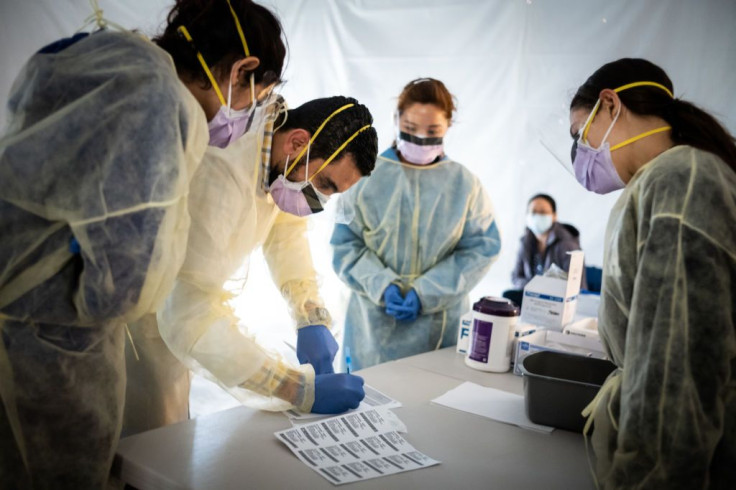Initially, when the coronavirus pandemic began spreading across the globe, it was majorly recognized as a respiratory disease. But gradually, different symptoms have been observed in COVID-19 patients, with the latest addition being the presence of severe neurological complications that includes inflammation, psychosis and delirium.
The additional symptoms were observed in a study by researchers at University College London (UCL), wherein they found 43 cases COVID-19 patients who were found to have suffered from temporary brain dysfunction, strokes, nerve damage or other severe complications. Thus proving that the disease can damage the brain.
“Whether we will see an epidemic on a large scale of brain damage linked to the pandemic -- perhaps similar to the encephalitis lethargica outbreak in the 1920s and 1930s after the 1918 influenza pandemic -- remains to be seen,” said Michael Zandi, who co-led the study.
Published in the journal Brain, the UCL study had nine patients, with brain inflammation, who were diagnosed with acute disseminated encephalomyelitis (ADEM), a rare condition usually seen in children and is triggered by viral infections.
Earlier the frequency of an adult patient coming in with ADEM per month was barely one, but now, at least one patient a week has cropped up since the pandemic struck.
“Given that the disease has only been around for a matter of months, we might not yet know what long-term damage COVID-19 can cause,” said Ross Paterson, who co-led the study. “Doctors need to be aware of possible neurological effects, as early diagnosis can improve patient outcomes.”
“My worry is that we have millions of people with COVID-19 now. And if in a year’s time we have 10 million recovered people, and those people have cognitive deficits ... then that’s going to affect their ability to work and their ability to go about activities of daily living,” shared Adrian Owen, a neuroscientist at Western University in Canada.
The emerging evidence of the possibility of severe brain damage as an effect of COVID-19 needs to be studied and backed by extensive data collection to find out the extent to which it exists in patients. “This disease is affecting an enormous number of people,” Owen said. “That’s why it’s so important to collect this information now.”

© 2025 Latin Times. All rights reserved. Do not reproduce without permission.



